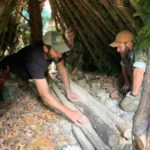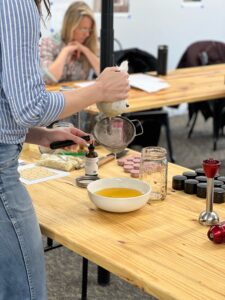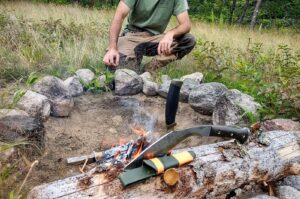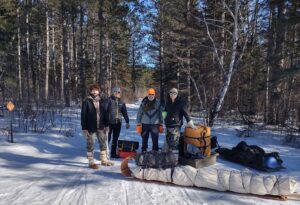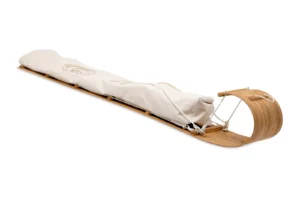- Posted on
- By walkers.path.bushcraft@gmail.com
- In Blog, Uncategorized
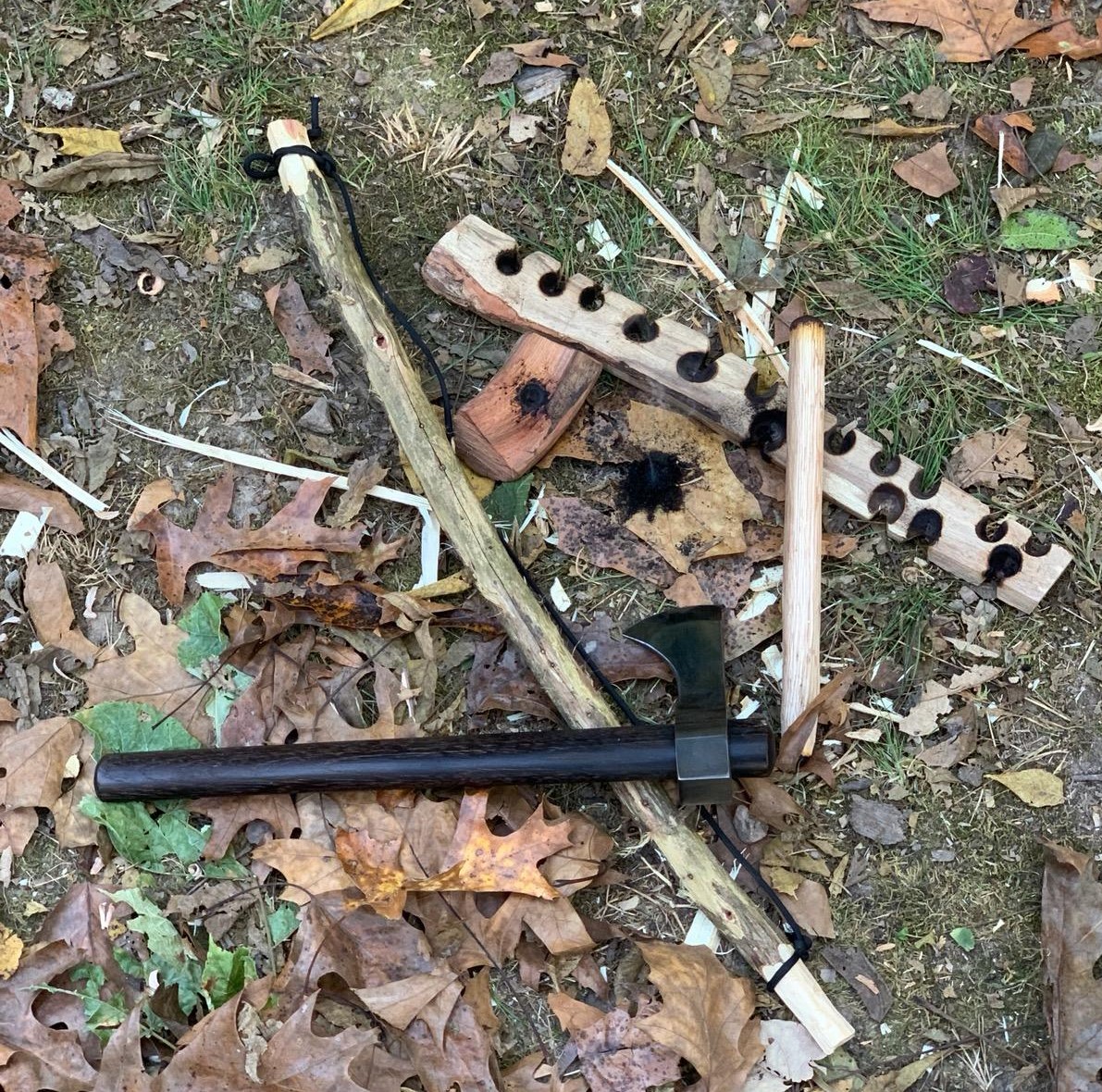
SIGMA 3 SURVIVAL SCHOOL
Week 1
Sept 28, 2020. 5 a.m. : started the short 1,100 mile drive in the old work truck towards Reeds Springs, MO. Why would I risk driving a truck with over 350,000 miles on it so far? Well, after watching the news over the summer, I wasn’t about to risk driving our Tahoe through an area where a riot could take place, and having to abandon our vehicle to an angry mob…who knows what could happen during the 45 days I planned on being gone. This was my maiden voyage using the GPS and not relying on my maps…and yes I still have a flip phone but I like being old school, so get over it.
The next day, I arrived at the school around 3pm. The first people I met were William and Josh. They welcomed me and gave a brief rundown of the property, showing me where to park and mentioned that I could sleep wherever I wanted to that night. Being a kid at heart, I chose the tree house that was located in the center of camp. As the night went on, students slowly filtered in. We stayed up pretty late visiting and telling stories around the camp fire. It’s not often you meet so many like minded people.
The first five days were known as the Standard Class and pretty much every class started at 8am. Each morning, I was getting up around 5:30 to make breakfast and read. With a pot of liquid energy ready to go, it didn’t take long to gain two early morning coffee buddies. In our quest to help each other, they offered to share notes and pictures with me, which was great because my picture taking ability is on-par with a small child.
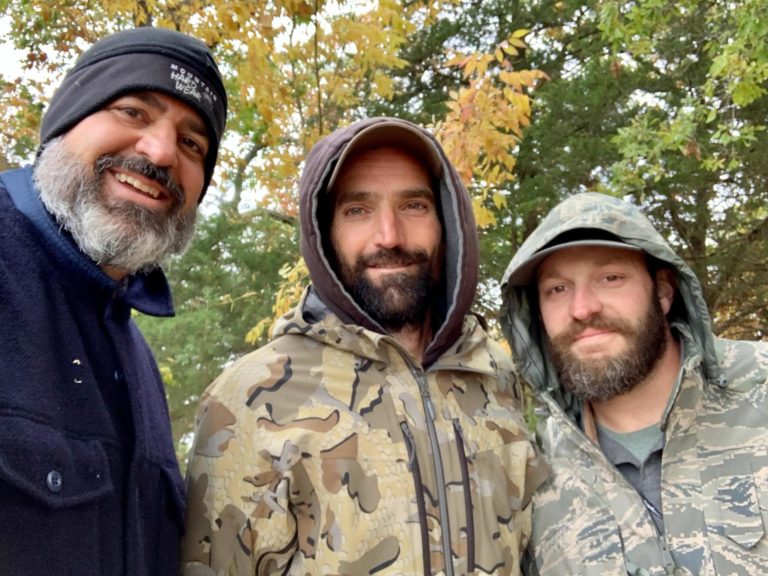
After introductions on day 1, Rob gave the instructor candidates the rundown on what was expected of them and the main rules… the big one being no sleeping in your car or truck no matter how bad the weather.
GEAR
The first subject we covered was gear. This included everything from what you wear, to what is in your truck. The teachers were well versed in both modern and primitive skills. I tend to lean more towards the primitive skills end of things. Being a not so gear heavy person, I appreciated learning about tools I had never heard of before. It made me think that when I taught in the future it would help bridge the gap between the old and the new with some of my more modern thinking students.
SHELTERS
When I first enrolled in class, I wasn’t really expecting to enjoy building shelters so much because I had built and stayed in debris huts and lean-tos before. Surprisingly, it ended up being quite enjoyable because so many people were helping construct them, which consisted of raking lots and lots of leaves…hence the battle cry, “MORE LEAVES”. We also learned different lean-to variations using tarps and ponchos. Knots were demonstrated to aid in quick take down and setup of shelters, which included the trucker’s hitch, the lark’s heads, and the slip knot to name a few.
WATER PROCUREMENT
In this part of the class, we talked about sip wells, primitive filters, and filters that can be carried on you.
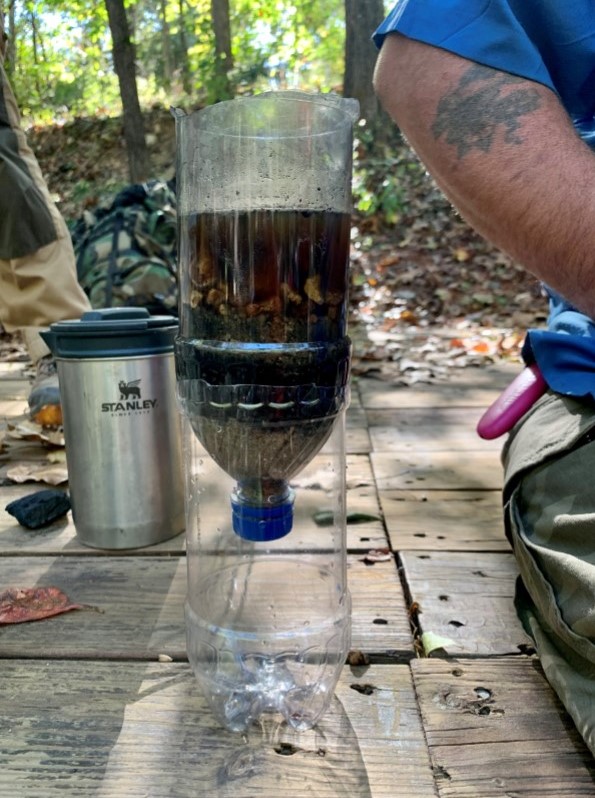
THE ALL-IMPORTANT FIRE
I enjoyed this part of the class the most. We covered everything from ferro rods to bow drills. We even got a coal using a fire plow, though it was a group effort, not a lone wolf method as told in the story books. When we were working on the bow drill, I was trying to learn as much as I could to improve what I already knew. Back in 2005, I had learned how to make and use the bow drill at the Tom Brown Tracker School.. but I didn’t get my first coal until I got home a week later, and still have a picture of that fire. Since then, I have not only made kits for myself and taught classes on bow drill, I actually sell kits online. While using the bow drill at class, every time I got a coal, Rob and William would challenge me to use harder and harder wood, building up to oak (which I didn’t get a coal with for a whole week).
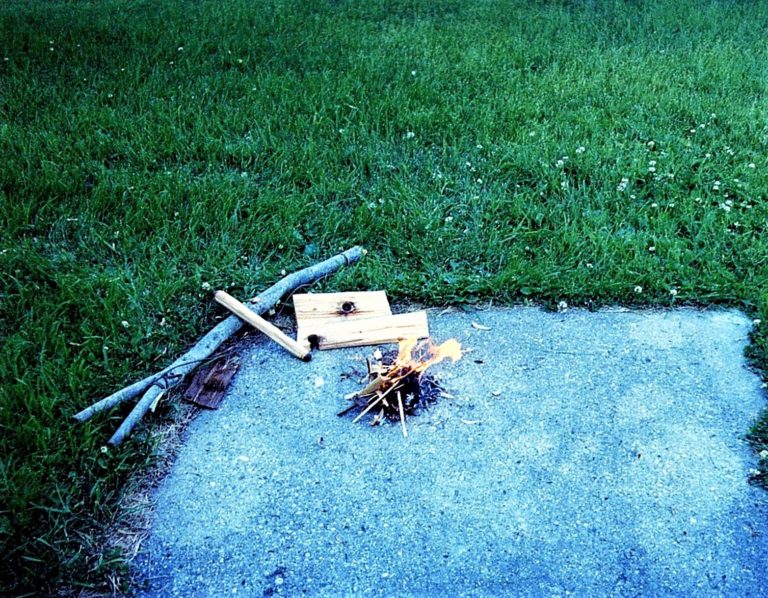
FOOD PROCUREMENT
Trapping is something I have been doing since I was a teen. I’ve used snares, conibears, and leghold traps to catch everything from weasels to coyotes. I have made primitive traps, such as the figure four and Paiute dead fall, but the split stick version of these traps I learned at Sigma 3 is superior to the way I had been doing them in the past. It’s kind of funny…if you do the same thing long enough, you overlook the obvious.
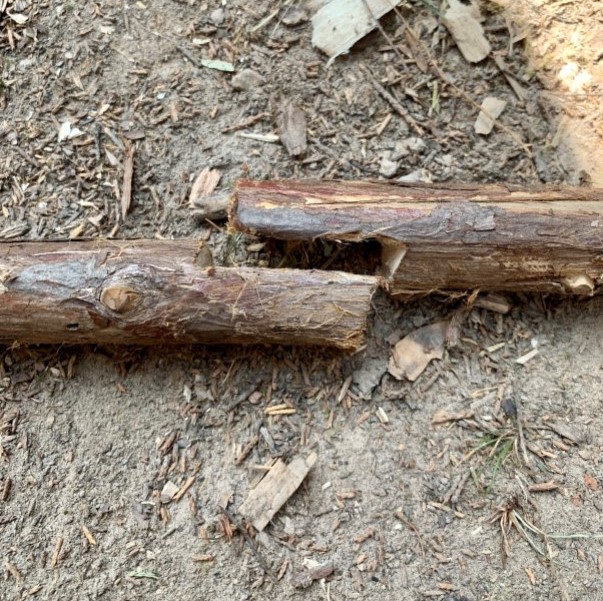
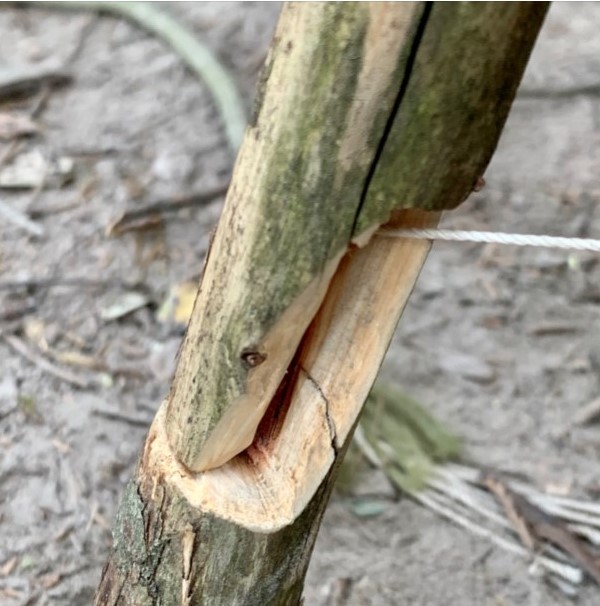
This is just a small taste of what I learned in the standard class, and just the beginning of the journey. Hope to be writing more soon. Remember; to keep your eyes on the skyline, and your blades sharp.

